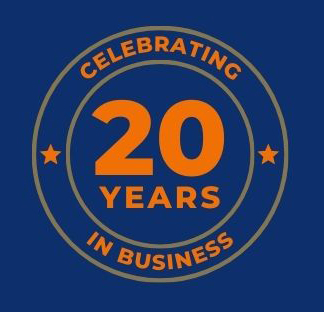How artificial intelligence can improve the recruitment experience
- 23 Nov 2017
If recruiting is a face-to-face job, how can artificial intelligence (AI), specifically the use of chat bots, have a role?
In a number of different ways, it turns out...
1) Chat bots can improve the candidate experience, before they even apply for a role.
Whilst this use of AI is well known within customer service portals, it is perhaps a newer angle for the recruitment process. A chat bot can sit on a recruitment firm’s website and act as a “concierge” service, assisting candidates with questions - about a particular role, or the recruitment process, prior to even applying for the job.
Not only does this save time for the candidate, because they don’t have to wait for a call back (that might never come), it can improve the application rates to the job. This is because the chat bot can prompt candidates who have started but not completed an application to do so (research shows that the rate of incomplete applications can be surprisingly high).
The extra clever bit with the more advanced chat bots is that with the use of a natural language programming (NLP) engine, the chat bot can learn answers to new questions so it continuously improves on how many questions can be answered before directing the candidate to a recruiter.
For the sceptics among us (like me) who would rather talk to a human than text a chat bot, findings are starting to show that many people actually prefer talking to a computer. This is in part is because they think there can be more accuracy in the answers received from a chat bot than a human. However, there is also, significantly for recruitment, the view that people are more comfortable asking difficult questions of a machine than they might of a human, as they feel that a chat bot will not (prejudicially) judge them for asking the questions whilst a human might.


2) Chat bots can pre-screen candidate applications.
This is probably the most well-known area in which AI is already being used in the recruitment industry. Once a job application has been received, engines that are integrated with applicant tracking systems (ATS) can interpret the CV in the same way (but perhaps more neutrally and efficiently) as a human to check for suitability of the candidate’s experience against the role.
Where an application is not progressed, the chat bot provides a response to the unsuccessful candidate, filling the “black hole” that so often happens with automated application processes. Whilst the candidate may not have got the job this time round, they will, at least, have been left with a good impression of the recruitment firm.
In instances where the chat bot determines that the application is relevant, it can then ask some basic questions to determine whether the candidate should be put forward to the next stage of meeting the recruiter, even helping with the administration of setting those interviews up. The advantage of having a chat bot instigate this initial screening is efficiency of time - the candidate gets a faster decision, and the consultant has more time to spend on face-to-face meetings, rather than faceless administration.
And what’s becoming more powerful as machine-learning improves, is that the engine starts to become better able to predict which candidates will be most successful in the role. This methodology is already employed by google for their hiring, with the view that using a machine rather than a human allows more and different data predictors to be taken into account, with the added benefit of removing human “error” or bias.


3) Chat bots can re-engage candidates.
This is perhaps the least well-known area in which AI can help recruiters free up time for meaningful interactions. Chat bots can be integrated with the database of talent and programmed to contact candidates with whom the business has lost touch, usually through lack of time or because a recruiter has moved on.
Through answering questions about whether they are happy in their current role or looking to move, the chat bot can identify those candidates to whom it would be relevant for the recruiter to speak directly. Automation of this follow up process has the benefit of ensuring that no-one is “forgotten”, even when a recruiter leaves the firm, and the candidate receives regular “check-ins” so that the recruiter remains front of mind when they start looking for their next role.
So, in the same way that AI is not replacing the roles of specialists in other industries, Chat bots aren’t replacing human recruiters. But what they do have the power to do is free up their time for more meaningful human interactions which, after all, is their differentiator.

